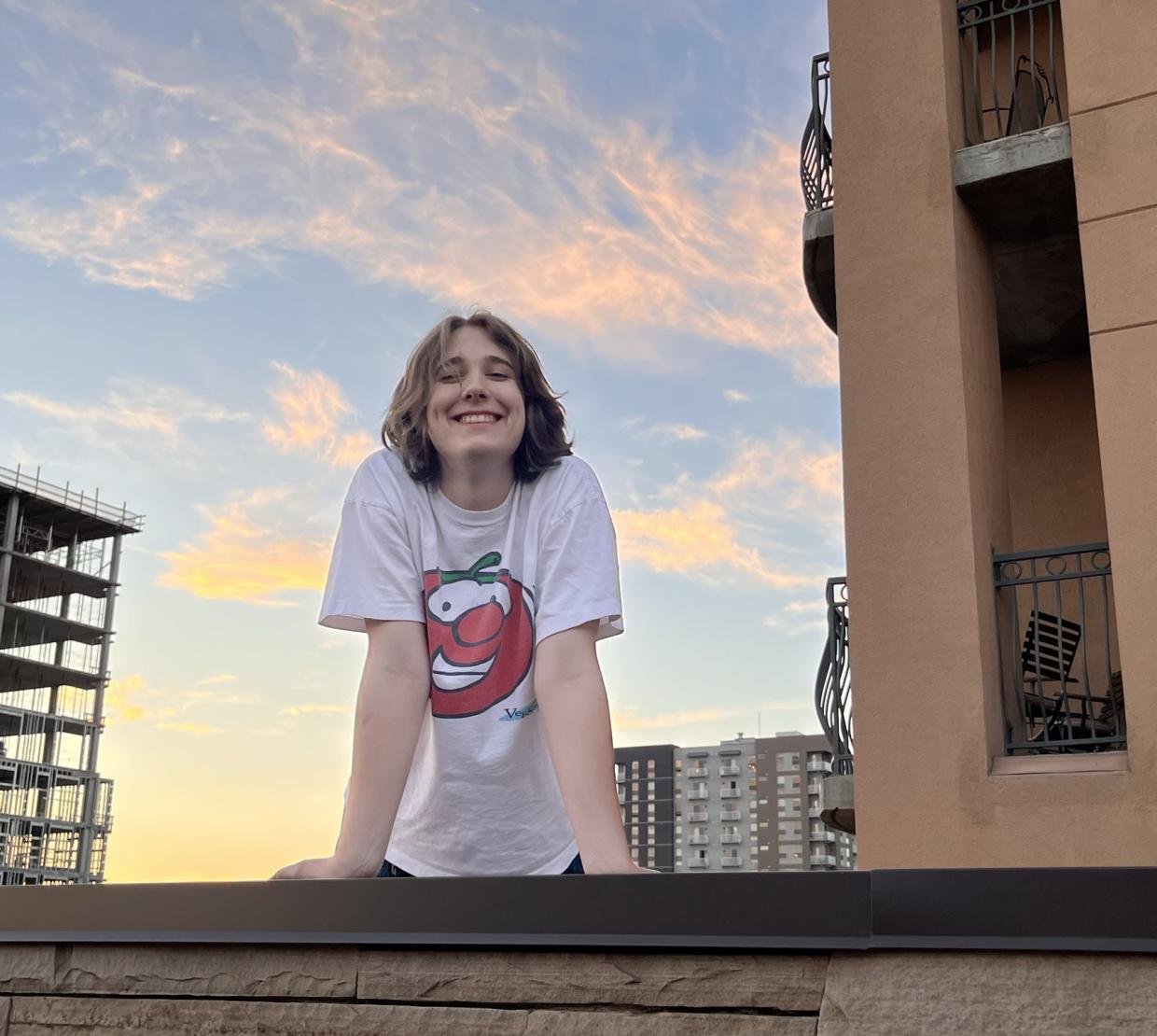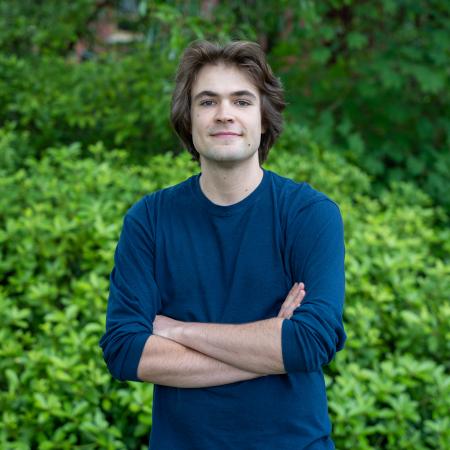His other academic passion is not known for its lack of ambiguity.
"Math and science were my big subjects in high school, but I also had a small interest in philosophy," Holzschuh said. "I really do still love philosophy."
He just doesn't have a lot of time to hang out with Plato, Descartes and their 21st-century counterparts as a mathematics major.
"Because I spend most of my time studying math, I don't have the reading comprehension level to truly understand a lot of the current philosophy papers," he said. "They're just so heavy and dense."
Still, he has friends ready to help. "One of my best friends is a philosophy major in Belgium, and he will talk to me about philosophy for hours," he said. "I really love it."
"Being able to go on the scheduling website and just take a bunch of math classes, it makes me pretty happy."
Being a math major has not kept him socially isolated, he added.
"I've met so many different people from so many different majors," Holzschuh said. "One of my best friends is a mechanical engineer. My two roommates are botany and English majors."
Students recognized for expertise in certain subjects in high school are often humbled when they arrive at college and are no longer the big fish in a small pond.
Even if he was no longer one of a handful of math stars, Holzschuh said he found coming to the mathematics community at Oregon State exhilarating.
"I actually liked it," he said. "For one, college allowed me take the classes I wanted to take. I went from high school, where I took one math class a year and seven other random classes, to where I'm taking 20 hours of math and statistics this semester."
He added, "Being able to go on the scheduling website and just take a bunch of math classes, it makes me pretty happy."
Undergraduate students usually spend much of their freshman and sophomore years taking required lower-division classes, regardless of their majors.
"Once you get past your second year in mathematics, it really opens up," Holzschuh said. "I came in a year ahead on my math track, so once I got to my second year, I could take linear algebra, and once you've taken that, basically everything opens up. You can pretty much take any math class in any field."
He has taken such general elective classes as differential equations, complex variables ("which is really interesting"), math models and math biology.
"I never thought I would take anything related to biology because I hated biology in high school, but that was an interesting class," Holzschuh said.
After graduation, he intends to move from Corvallis in August to start graduate school at Boston University.
"I selected Boston University because it's on the East Coast," he said. "I really want to go there, especially because of math and finance. The East Coast is a great place to be for that. Also, Boston seems beautiful, and it's close to New York."
After grad school, Holzschuh said he hopes to remain on the East Coast and pursue his love of numbers as a quantitative analyst -- designing, developing and implementing algorithms and mathematical or statistical models to solve complex financial problems.
"It's a very challenging career path, and I really like being challenged," he said.




